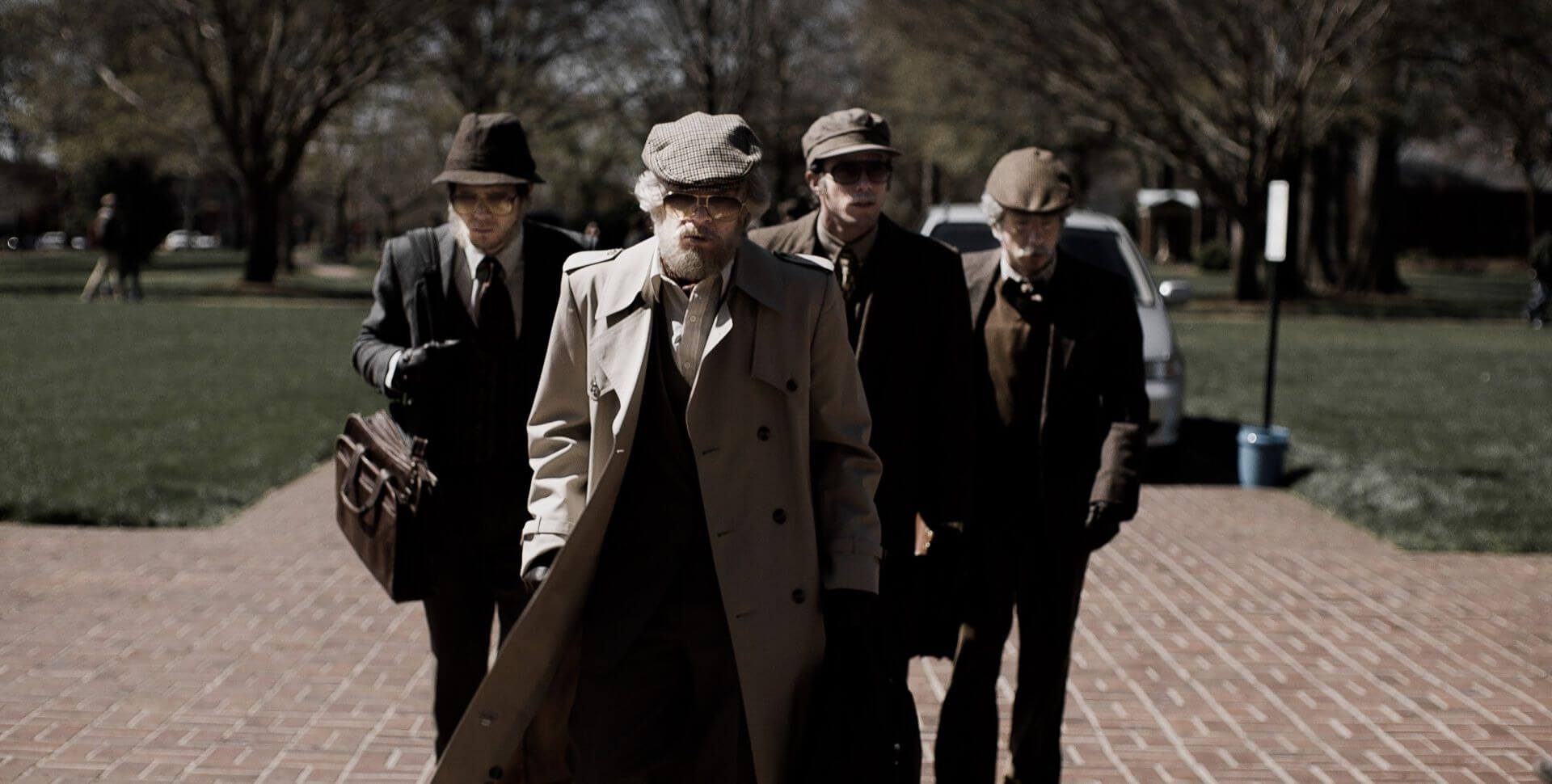American Animals [2018] follows the true story of four college-aged friends who, in an attempt to inject excitement and purpose into their small-town lives, plan to commit a heist to obtain a set of extremely valuable books from the Transylvania University library. Bart Layton’s follow-up to the award-winning documentary, The Imposter was his first foray into the world of docudrama and combines elements of the real world and dramatization inspired by iconic heist films.
Strong Performances Overshadowed by Organic Charm: The Transylvania Heist is one of those real-world story’s which seems far too outlandish to have actually occurred. Resultingly, in American Animals, it was vital to the authenticity of the film to include interviews with the four individuals actually involved in the heist. Layton intercuts interviews with the four boys and their families in with the dramatization of the events. Performances by Evan Peters and Barry Keoghan are clear standouts, however, Keoghan’s characterization is effectively nuanced, whereas Peters does not quite amount to the charisma of the real-life Warren Lipka, something which seems impossible to replicate and serves as a detriment to the dramatization. In their portrayals of the heists ringleaders, the two actors illustrate the dichotomy between the core benefits and disadvantages of portraying both the real-life participants and the dramatized representation of them. Where Spencer is the tortured artist of the group, the introspective middle-class boy who yearns for his life to equate to so much more than small-town Kentucky and Warren is the boisterous iconoclast, the doer who places the magical switch in Spencer’s hand and offers a way to attain more at the cost of everyone around him- it’s a dynamic of introvert and extrovert, and when placed aside their real-life counterparts Keoghan shines and Peters leaves us yearning for a cut to the real-life Warren, an individual oozing with charisma who upon revealing his full arm tattoo of T-Rex fighting a UFO draws you into his eccentric personage. With a tale of the sort, Layton banks too much on the real Warren Lipka to the detriment of what would have been a fantastic performance by Peters under any other circumstance.
A Classic Rock Soundtrack to Conceal the Dark Intent: Layton has constructed a film which cleverly navigates two extremely varying tones. On the one hand, audiences are swept up in the typical dance undertaken by all individuals at an impasse in their 20’s. Warren and Spencer juggle the existential doubt of a “mid-college crises” and having all of the messy fun they can while they’re young, it’s a tone exemplified by a classic rock soundtrack, a number of montages and moments of idiotic banter interwoven into dialogue. On the other hand, you have the real-world consequences of their actions, the stress inflicted on the boys and their relationships, and the harm they are doing to those around them; all of this is exemplified by drunk montages slowly spiralling into messy bar brawls, tense moments of silence at family dinner tables and the disappointed gazes of those who gravitate them. This is where Layton shines, he has you belly-laughing at one moment and feeling sick to the stomach in the next, whilst he creates a possibility for audiences to empathise with these criminals, he never fails to remind us that these are simply middle-class white men who harmed others for the selfish purpose of escaping the sense of unimportance that weighs them down in their lives.
Overall, American Animals is an effective and entertaining transition for Layton from documentary cinema to docudrama, though there are some issues with characterization, these were issues spurred by the circumstances of the real-life story which the film is based upon and could have only been placated in the hands of a more veteran filmmaker.

What's the story behind American Animals?
Read our interview with American Animals Director Bart Layton.

